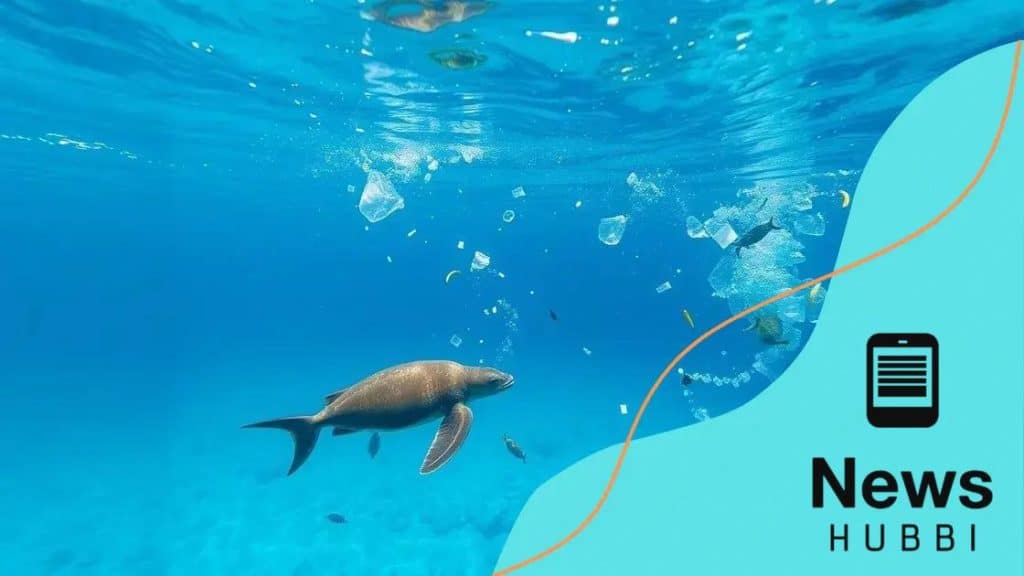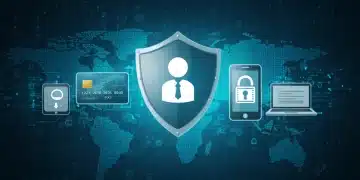Global initiatives to reduce plastic waste in the ocean

Anúncios
Global initiatives to reduce plastic waste in the ocean involve advanced recycling methods, biodegradable alternatives, and community clean-up efforts, empowering individuals to play a vital role in ocean conservation.
Global initiatives to reduce plastic waste in the ocean have gained momentum as we realize the urgent need for change. Have you ever wondered how these efforts impact our planet and what you can do to contribute?
Anúncios
Understanding the problem of plastic waste
Understanding the problem of plastic waste is essential to tackle this global issue. Every year, millions of tons of plastic end up in our oceans, harming marine life and ecosystems. But why is this happening?
The scale of plastic pollution
Globally, we produce over 300 million tons of plastic each year, with a significant portion finding its way into the sea. This staggering amount means that our oceans are facing a crisis.
Impact on marine life
Marine species, from tiny fish to large whales, are affected by plastic debris. They can ingest plastic, mistaking it for food, or become entangled in it. This leads to injuries, suffering, and even death.
Anúncios
- Over 800 species are known to be affected by plastic waste.
- Microplastics enter the food chain, impacting not just sea life but also humans.
- Plastic pollution contributes to the decline of marine biodiversity.
Furthermore, the effects of plastic pollution extend beyond the ocean. Toxic substances leach from plastics, polluting water and air, which can harm coastal communities and wildlife.
Sources of plastic waste
Understanding the sources of plastic waste is crucial. Common sources include:
- Single-use plastics like bags and bottles.
- Microfibers from clothing and textiles.
- Industrial waste and improper disposal practices.
Each of these areas contributes to the growing problem, making it clear that solutions require cooperation from individuals, businesses, and governments.
A shift in public awareness and behaviors is needed. Communities worldwide must rally together to reduce their plastic footprint. Small actions can lead to big changes.
Key global initiatives tackling ocean pollution
Key global initiatives tackling ocean pollution are vital in the fight against plastic waste. These efforts aim to create a cleaner and healthier ocean for all marine life. Various organizations and governments are taking action to address this pressing issue.
International efforts
One of the strongest movements is the United Nations initiative for a plastic pollution treaty. This groundbreaking effort seeks to unite countries worldwide in reducing plastic waste.
Community-driven projects
Local communities also play a crucial role. Grassroots organizations frequently organize clean-up drives that involve volunteers from all walks of life. Such local efforts not only clean beaches but also raise awareness.
- Beach clean-up events.
- Education programs on waste management.
- Plastic recycling initiatives.
Moreover, many coastal countries are adopting policies to ban single-use plastics. These bans help reduce the amount of plastic packaging entering our oceans. Countries like France and Canada are leading by example with stringent regulations.
Innovative technology
Technology also plays a significant role in tackling ocean pollution. Innovations include inventions like floating trash collectors, which remove debris from the ocean efficiently. These inventions can gather tons of plastic waste at sea.
Collaboration between tech companies and environmental groups has led to the development of tools that monitor pollution levels. Such technologies help track the progress of initiatives and identify areas needing urgent attention.
Success stories from various countries

Success stories from various countries illustrate how global initiatives can effectively reduce ocean pollution. These examples highlight innovative strategies and community efforts that have made a significant impact.
Germany’s commitment to recycling
Germany leads the way with its robust recycling program. The country has implemented the Green Dot system, which encourages consumers to recycle. This model has resulted in an impressive recycling rate of over 65%.
New Zealand’s marine reserves
New Zealand is known for establishing marine reserves, where fishing and plastic use are heavily restricted. This initiative helps restore marine ecosystems and promotes biodiversity. The results have been encouraging, with fish populations rebounding and beaches becoming cleaner.
- Improved wildlife habitats.
- Healthier fish populations.
- Increased tourism in clean areas.
Additionally, Kenneth Production in New Zealand engages communities in cleaning beaches. Their events not only remove waste but also foster a sense of stewardship among participants.
Japan’s innovative waste management
Japan’s approach to waste management is another success story. The country emphasizes education and strict waste segregation. Citizens are well-informed about recycling and composting, leading to a reduction in waste output. Cities like Kamikatsu has become models for zero waste living.
Scotland’s ban on plastic straws
Scotland is taking strong measures to combat plastic pollution by banning single-use plastic straws and stirrers. This initiative aims to reduce plastic waste entering the ocean and has garnered support from the public.
These success stories not only show what is possible but also inspire other nations to take similar action. Sharing knowledge and resources can amplify efforts to combat ocean pollution everywhere.
Innovative solutions and technologies
Innovative solutions and technologies are crucial in the battle against ocean pollution. Many new ideas are emerging to reduce plastic waste and protect marine life. These technologies not only tackle existing problems but also prevent further pollution.
Advanced recycling methods
One of the most promising innovations is chemical recycling. Unlike traditional methods, this process breaks down plastics into their original monomers, creating new, quality products without degrading performance. It allows for a wider range of plastics to be recycled and reused.
Biodegradable alternatives
Many companies are developing alternative materials that break down more easily in the environment. For example, biodegradable plastics made from natural resources like cornstarch aim to replace single-use plastics. These materials can help reduce the amount of waste in our oceans.
- Biodegradable bags that decompose in months.
- Compostable food containers that return to the earth.
- Plant-based straws as alternatives to plastic.
Additionally, several start-ups are using innovative designs for packaging. These designs focus on minimalism, reducing waste at the source and making products easier to recycle.
Surveillance and monitoring technologies
Another area of innovation includes drone and satellite technology. By using these tools, researchers can monitor plastic pollution in real time. This data helps identify pollution hotspots and informs cleanup efforts, making them more efficient.
Moreover, ocean-cleaning devices, such as floating barriers, actively collect plastic waste from the ocean. These devices are designed to trap debris while allowing marine animals to safely pass through. With continued research and investment, these technologies can change the course of ocean conservation.
Your role in combating plastic waste
Your role in combating plastic waste is crucial. Every individual can make a difference, and small actions can lead to significant change. By being mindful of our choices, we can help protect our oceans.
Reducing single-use plastics
A great way to start is by reducing or eliminating single-use plastics from your life. Opt for reusable products like water bottles, shopping bags, and food containers. This simple change reduces the demand for plastic and helps to keep trash out of the ocean.
Participating in clean-up efforts
Joining local clean-up events is another effective way to contribute. Many communities organize beach or park clean-ups where volunteers remove plastic and other debris. Participating not only helps the environment but also raises awareness among friends and family about the issue of ocean pollution.
- Check for organized events in your area.
- Bring your family and friends to make it a fun outing.
- Consider starting your own clean-up initiative!
Moreover, educating yourself and others about the harmful effects of plastic waste plays a vital role. Share information on social media or discuss it in community groups. The more people understand the issue, the more support there will be for initiatives aimed at reducing plastic waste.
Advocating for change
Advocacy is another powerful tool. Support policies that promote recycling and the reduction of plastic waste. Contact your local representatives to express your concerns about plastic pollution and to encourage them to support environmentally-friendly legislation.
Every action counts, and by playing an active role, you contribute to a healthier planet. Think about the changes you can make, and inspire others to follow. Together, we can combat the problem of plastic waste and protect our oceans.
FAQ – Frequently Asked Questions about Combating Plastic Waste in the Ocean
What can I do to reduce my plastic waste?
You can start by using reusable bags, bottles, and containers instead of single-use plastics.
How do community clean-up events help?
Community clean-ups remove plastic waste from beaches and parks, helping to protect marine life and raise awareness.
Why is advocating for policies important?
Advocating for policies helps support legislation that reduces plastic waste and promotes recycling, leading to a cleaner environment.
How can I educate others about plastic pollution?
You can share information through social media, community groups, or by organizing informational sessions to raise awareness.





